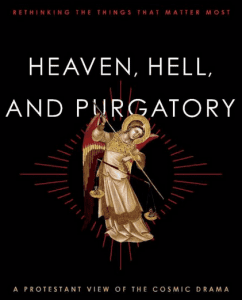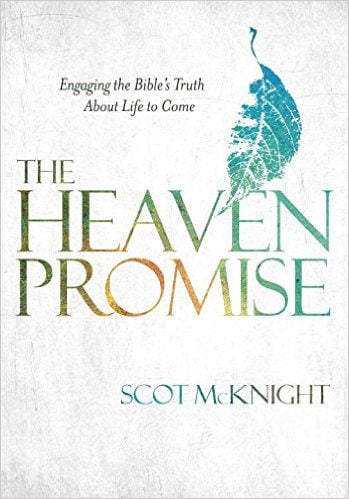 That fussy but relentless atheist philosopher, Friedrich Nietzsche, as he always does, lays it on the line when it comes to the Christian belief in an eternal heaven of goodness, saying,
That fussy but relentless atheist philosopher, Friedrich Nietzsche, as he always does, lays it on the line when it comes to the Christian belief in an eternal heaven of goodness, saying,
The “most contemptible of all unrealisable promises” generated by the Christian gospel is the impudent doctrine of personal immortality.”
So where did that conviction take him?
A new pride my ego taught me, and this I teach men: no longer to bury one’s head in the sand of heavenly beings, but to bear it freely, an earthly head, which creates a meaning for the earth.
Jerry Walls aims to counter Nietzsche’s approach in his new book, Heaven, Hell, and Purgatory: A Protestant View of the Cosmic Drama, and he does so successfully — and with some panache! Before we get to his counter to the man he calls his “favorite atheist” I sketch the seven themes of heaven in Walls’ portrait, and in doing so I observe that many theologians who believe in heaven don’t have the courage to put realities to their convictions. Walls does:
1. It is the ultimate romantic comedy: the human story comes to a comic end.
2. The answer to our deepest longings.
3. A new heaven and a new earth: an embodied reality of newness.
4. The death of death.
5. A reunion of truth, beauty, and goodness.
6. Celebration of the best of human culture.
7. At home with God.
These seven big ideas about heaven are biblically solid, non-speculative, and inherent to what the Bible says about heaven.
Walls anchors his chapter in two ideas:
First, happiness. Aristotle, Pascal, and Wesley are just three who affirm that humans seek to be happy, and he eschews any superficial sense of happiness for a deep-seated happiness.
We have a built-in hard drive to desire happiness, but what if that hard drive is a guarantee of frustration, a mechanism that ironically assures our unhappiness because it can never be fully realized? Are we, through no fault of our own, born with an “addiction” for happiness in a universe where it can never be satisfied? (23)
And, second, love.
Indeed, we can take this a step further and point out that there is a deep connection between our yearning for love and our desire for happiness. Only if we love and are loved can we be truly and deeply happy. For many people, the essential key to happiness is to find their soul mate, the perfect relationship that they believe will fulfill them and at last provide the happiness they crave (23).
Now back to Nietzsche, for Walls contends Nietzsche’s biggest problem with the gospel was its view of love, God’s love, God’s love made manifest on the cross. Two words from Walls now on love:
So here is a paradox; indeed, we can call it the love paradox. [f we love God most of all, we are thereby inspired to love other things more deeply and truly than we would if we loved them more than we love God.22 To see God’s face in heaven will not mean that our interest in other people and other created things will diminish or even that we will love them less. Rather, it means we will see God clearly in all his good gifts, and we will love and enjoy them even more as a result (38).
Nietzsche simply could not conceive of love like this really existing, and this was the deepest reason he found the idea of heaven preposterous. And this, I want to emphasize, is the watershed issue. Is Dante right that love moves the stars, or is Nietzsche right that the will to power makes the world go round? Do the strong inevitably dominate the weak like those birds of prey that carry off lambs, or is ultimate truth both more surprising and more beautiful than we could ever have guessed?
Nietzsche’s Alpha was the will to power, so he could not imagine an Omega where perfect love is the order of the day. But if the Trinity is the Alpha and the Omega, then heaven makes perfect sense. If the Trinity is bedrock reality, then love is the very heart of the meaning of life. And when perfect love achieves its ends, we may hope to find the perfect happiness we crave, the perfect comic end of the cosmic drama.
In the end, Walls thinks of God in a way that means God is the dance itself:
No doubt C. S. Lewis had these church fathers in mind when he noted “that in Christianity, God is not a static thing—not even a person—but a dynamic, pulsating activity, a life, almost a drama. Almost, if you will not think me irreverent, a kind of dance” (26).











